Alejandro Valverde in perspective: An all-time great or a product of his time?
Eusebio Unzué looks back on Spaniard's career and Operacion Puerto ban
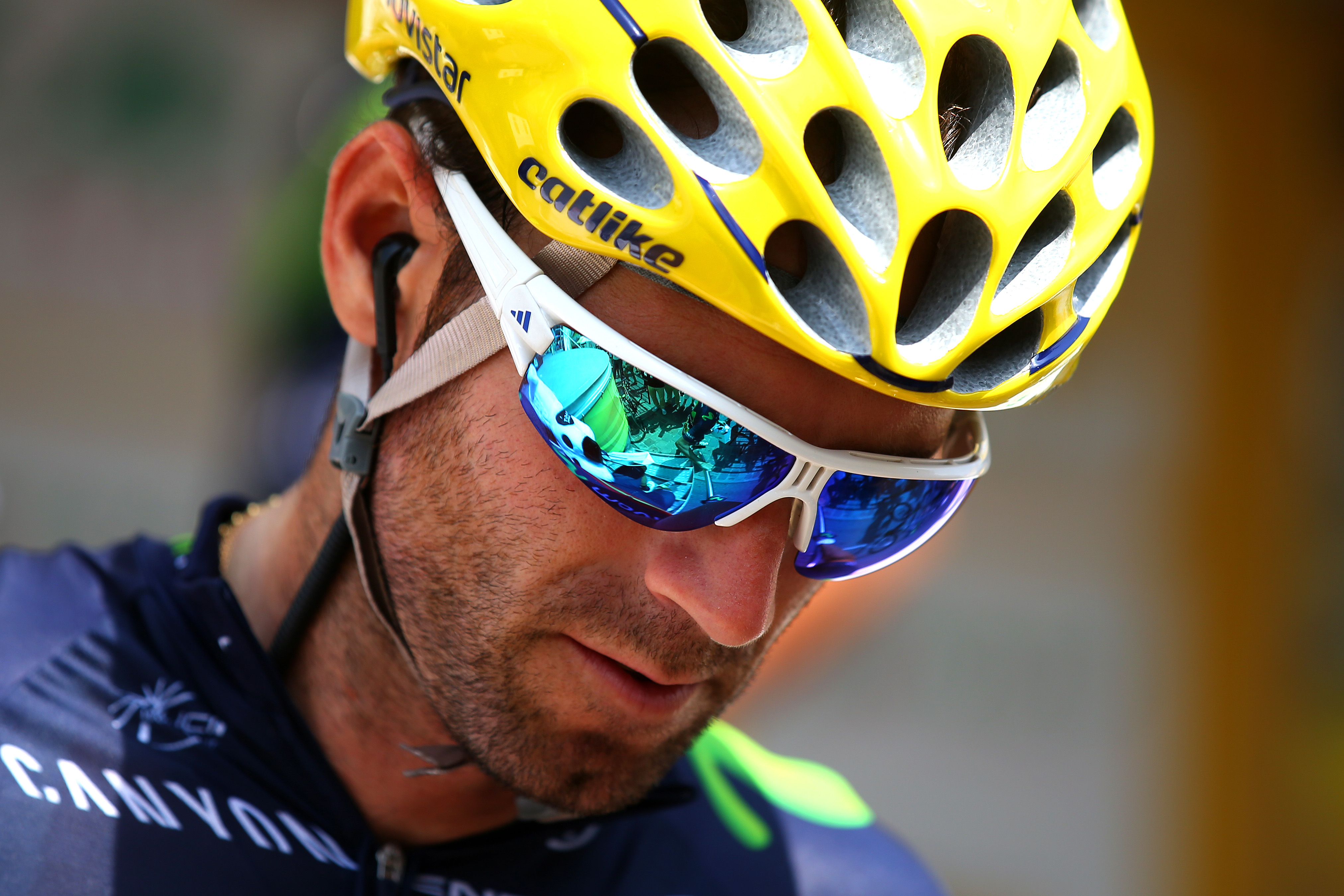
In the ProCyclingStat ‘all time’ points classification, Alejandro Valverde is ranked sixth, behind Eddy Merckx, Sean Kelly, Francesco Moser, Roger De Vlaeminck and Bernard Hinault.
Valverde secured his place in the exclusive list thanks to 133 races and 348 podium finishes during his 21-year career, a rare mix of longevity and success.
Valverde raced for the last time at Il Lombardia but refused to call it a day, travelling to Singapore and Saitama for the Tour de France criteriums. He does not seem tired of racing and was never tired of doing the same races, be they small races in Spain, the WorldTour Classics or Grand Tours.
He rode the Tour de France 14 times and the Vuelta a España 16 times. His palmares includes seven podium finishes at the World Championships and his yearly participation in the Ardennes Classics, with 16 starts apiece in Flèche Wallonne and Liège-Bastogne-Liège and then there were 14 starts at Il Lombardia.
There might be a lot of minor Spanish races in Valverde's total of 133 wins, but there are plenty of top-class victories too. And nobody criticises Merckx, for example, for wanting to win at everything he rode.
Valverde's enthusiasm fo racing and his palmares are widely admired but he remains a divisive figure in the sport, especially outside of Spain.
Long standing critics of Valverde insist that his involvement in the Operacion Puerto blood doping scandal and his subsequent ban left an irreparable stain on his career, particularly when coupled with his failure to acknowledge his involvement or make some kind of apology.
Get The Leadout Newsletter
The latest race content, interviews, features, reviews and expert buying guides, direct to your inbox!
Those who feel Valverde is a modern-day hero of the sport, with no questions needing to be asked, argue that his subsequent ban and time out was enough of an act of contrition, voluntary or not.
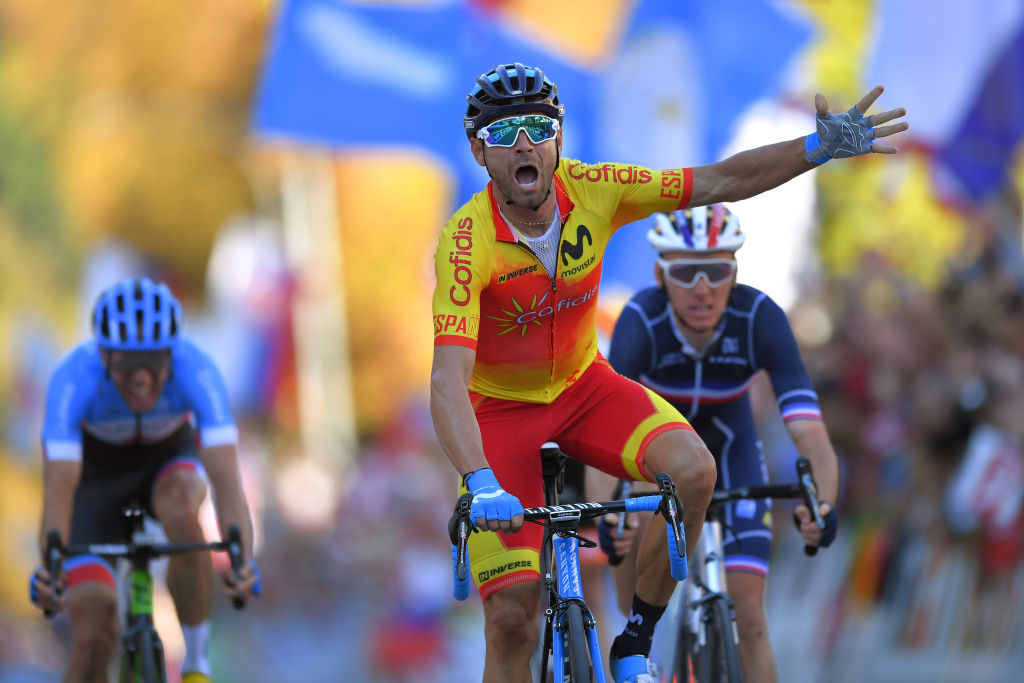
Is there a definitive way to judge Valverde?
As Neal Rogers wrote on Cyclingtips after the Spaniard won the World Championships in 2018, “Valverde doesn’t owe anyone an apology. But fans don’t owe him their support, either. Everyone’s entitled to react to his World title in their own way. There is no clean, easy answer to this.”
Ultimately, Rogers concluded that with no further positive tests or clarifications, but no apology either, we’re doomed to remain in the notoriously fickle, malleable court of public opinion, where simultaneously everybody has their opinion.
The more Valverde succeeded after returning from his ban in 2012, the more those who disliked his lack of repentance felt he was rubbing their noses in it, while the more his fans and admirers had to celebrate.
Valverde's career spanned several generations. Alberto Contador, Samuel Sánchez and Joaquim 'Purito' Rodríguez all turned pro, won the biggest races and then retired, while Valverde raced on. Other teammates like Mikel Landa and Nairo Quintana would come and go, and sponsors could emerge and vanish, all while Valverde endured.
During Valverde's career, his team switched sponsors from Illes Balears to Caisse d’Epargne and onto Movistar. Every year at the team presentation each January, he would greet everyone with a cheerful and courteous ‘buenos dias’ and almost invariably preceding all his comments with ‘bueno’ – Spanish shorthand for ‘well then’, or ‘let’s see.’ He marked the passing of time for two decades in Spanish cycling.
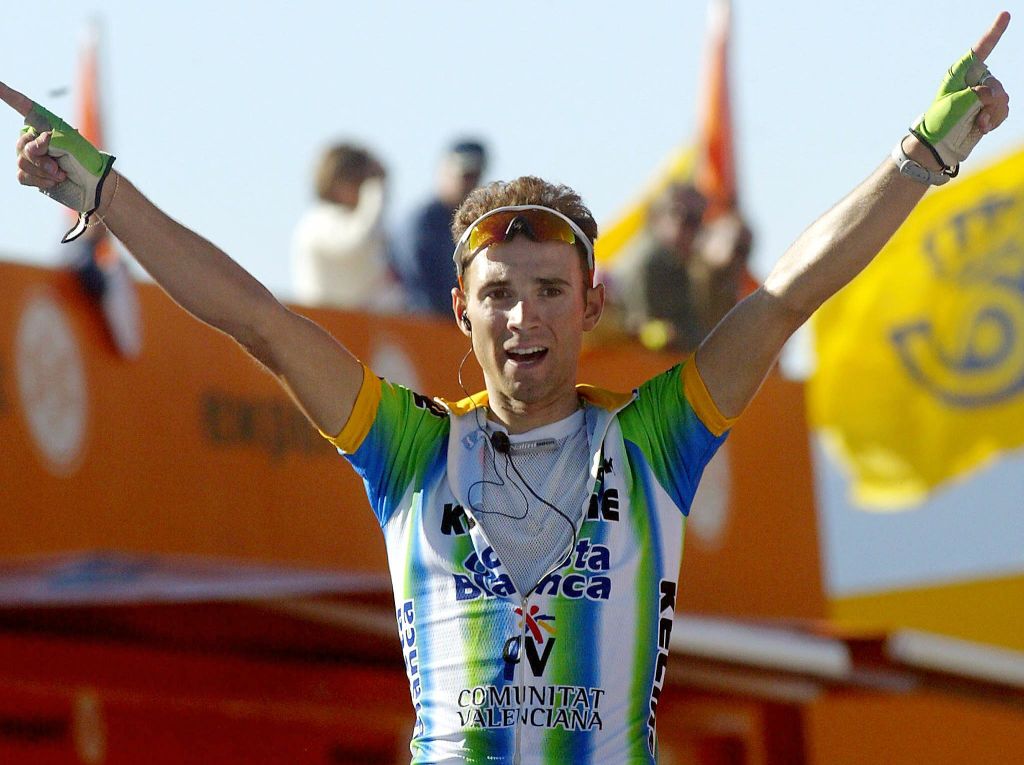
Possibly the most curious thing about such a longstanding relationship with a team is that Valverde was in the squad’s amateur line-up, too, making him the last rider still in action to have worn one a venerated Banesto jersey.
But he did not turn pro with Eusebio Unzué team. Instead, he headed back home to Murcia and signed with Kelme, who were based just up the coast in Valencia. It was not until 2005 that Valverde, by then a well-established rider, headed back north across Spain to Pamplona to sign for Unzué’s squad. This time for good, his time with Unzué lasting 17 years, with a future role in the team's management also agreed.
“He came through from the junior category up to being an amateur with us,” team manager Eusebio Unzué tells Cyclingnews. “But coming up from Murcia every weekend was tough on him, particularly back when roads in Spain were much worse than they are now.
“Kelme also offered him the possibility of a pro contract two years later than we could. So they got him.”
Valverde seemed destined to be a sprinter but Unzué emphasises that his versatility was what really encouraged him to sign him. By 2005, Valverde had gone way beyond bunch dashes. In his second year, he had already taken a silver medal in a World Championships in Canada, as well as a podium finish in the Vuelta courtesy of two summit finish wins on the brutally difficult La Pandera and the never-ending ascent of the Envalira.
It's worth noting what pushed him, finally, onto the podium in the Vuelta that year was a second place in the final, brutally difficult uphill time trial at Abantos. He was just 23 and, as Unzué said, “a rider who could do absolutely everything.”
“That’s what stood out about him throughout and that was what mattered,” Unzué tells Cyclingnews.
“You asked about his sprinting. Well, I can remember seeing him beat a guy as fast as Alessandro Petacchi in the Vuelta a Valencia.”
“But it turned he was as good or better at one-day Classics, week-long races, three-week stage races, wins here, podiums there. Anything that you threw at him, he could handle.
“On top of that, he was a rider who always had exceptionally good form, all the way from April through to October. You just need to look at how he’s just finished his career to see that.”
Valverde’s five victories in La Flèche Wallonne will likely be one of the longest-lasting records.
“He’s had to fight with very different riders, but always, or almost always, got to the top in first. Of course, he’s had some second places in that time but bear in mind that he’s been up there in the top three from 2006. “That takes something,” Unzué points out.
Indeed, Valverde’s last Flèche podium finish was this April, when he finished a close second to Dylan Teuns.
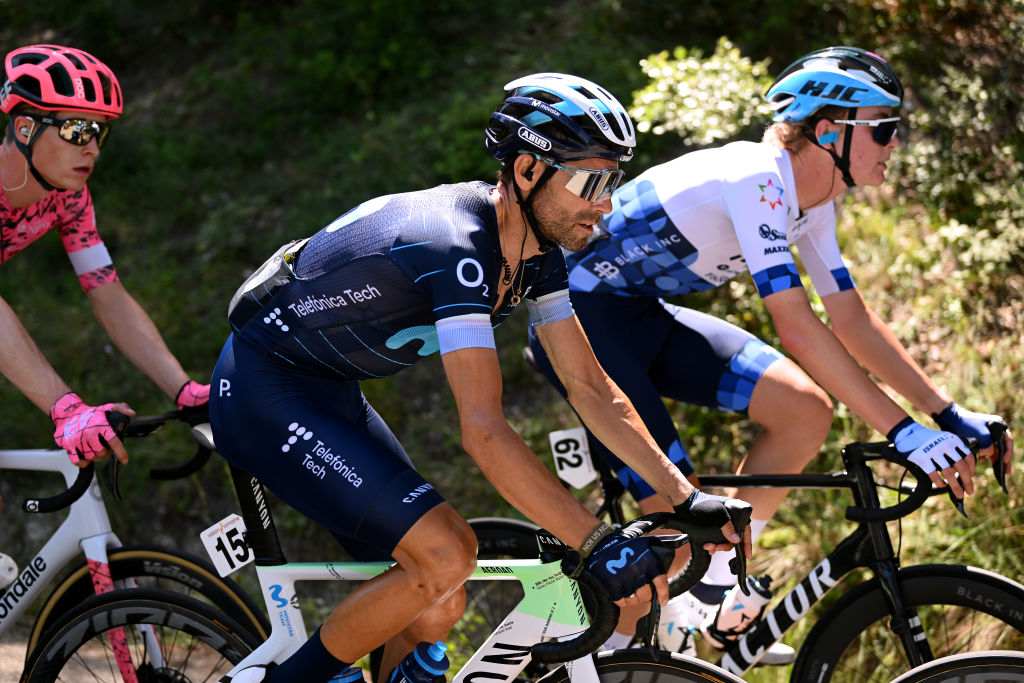
While Flèche Wallonne was his most successful WorldTour Classic, the race which Valverde pursued the longest and the hardest was the one in which he only snared one triumph. It turned out to be his last major one-day win as well: the Road World Championships.
“Don’t forget he’s got the most ever podium finishes in the Worlds,” say Unzué, pointing to Valverde’s gold, two silvers and four bronze medals, as well as his 11 finishes in the top 10 out of 14 participations.
“I think he could have won the Worlds three times. So being so close to success on so many occasions, it would have been unfair for him not to win the Worlds at least once.”
Valverde’s versatility sometimes proved to be a two-edged sword, Unzué argues, because the public grew overused to his winning and would not give him as much credit as he deserved, say, for being one of just three riders to claim Liège-Bastogne-Liège four times or more.
“Others won in Liège but their lack of other triumphs makes those victories stand out," Unzué suggests.
"But the next thing you knew, straight after Liège, Alejandro would be winning Romandie or the Dauphiné or a stage in the Tour. Factor in the podiums and then you really see the variety and versatility this guy could show. Over 21 years. The guy’s unique. Unique.”
Unzué also underlines that Valverde was not a difficult to manage and was already race fit and eager to pin on a number.
“We never had any problems deciding on his race programme,” he points out.
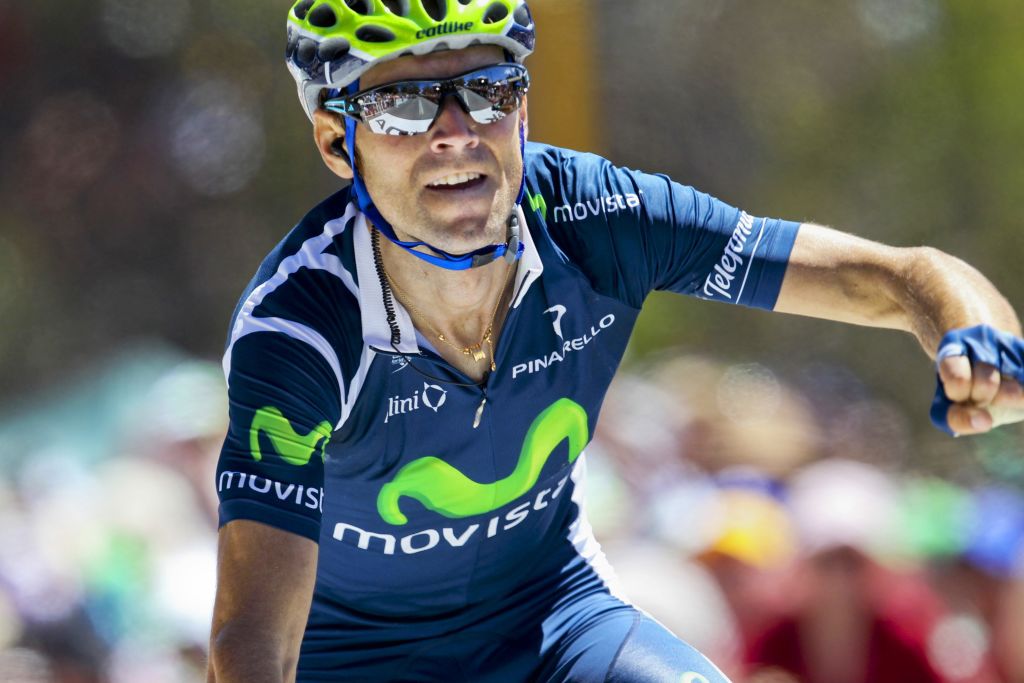
Of course, managing Valverde also involved overseeing his return after his Operación Puerto ban.
There was seemingly never any question of Unzué’s team dropping Valverde. Unzué’s argument in his defence is that the tougher cycling’s regulations have become – and although he does not refer to them directly, it’s pretty clear he’s discussing the anti-doping ones – the better it was for Valverde because that meant he could demonstrate his natural talent.
“He arrived at the top when the system was a little more lax, and after a year and a half away when he came back, right from his first race back [the Tour Down Under in 2012 – ed.] he was winning again,” Unzué argues.
During the ban, the team kept closely in touch with Valverde, trying to ensure that he stayed in good shape and so he knew that he wasn’t forgotten.
“It was basically just the same as if he was racing,” Unzué says.
“We wanted to help him get through a situation, which I’m no longer going to discuss whether it was fair or unfair. It just finally showed he didn’t need anything to be a great rider.
“We had been convinced that he’d come back just as good as he’d been when he stopped and both in that first era and up to the day before yesterday, he went on winning.”
The only difference, Unzué concluded jokingly, “is that back then he had more hair.”
Valverde remains in the record books as Movistar’s highest UCI-ranked rider until the end of 2022, with 1,996 points to Enric Mas’ total of 1,772.
Some suggest Movistar has become excessively reliant on Valverde for a solid base layer of results. Unzué has a more complex opinion on that.
“No doubt about it,” he says, before adding a qualifier: “But it wasn’t dependence.”
“We just enjoyed watching him perform and succeed in all kinds of races, barring Paris-Roubaix. He’s fought with the greatest sprinters, the greatest Classics racers, the best uphill finishers, mountain time trials, week-long stage races. To do everything he did, you’d need to sign six different kinds of riders.
“And in a sport where everybody says the level of racing and the quality of the competitors is constantly on the rise, he’s managed to do everything and more. It’s been a privilege to watch.”
Alasdair Fotheringham has been reporting on cycling since 1991. He has covered every Tour de France since 1992 bar one, as well as numerous other bike races of all shapes and sizes, ranging from the Olympic Games in 2008 to the now sadly defunct Subida a Urkiola hill climb in Spain. As well as working for Cyclingnews, he has also written for The Independent, The Guardian, ProCycling, The Express and Reuters.
